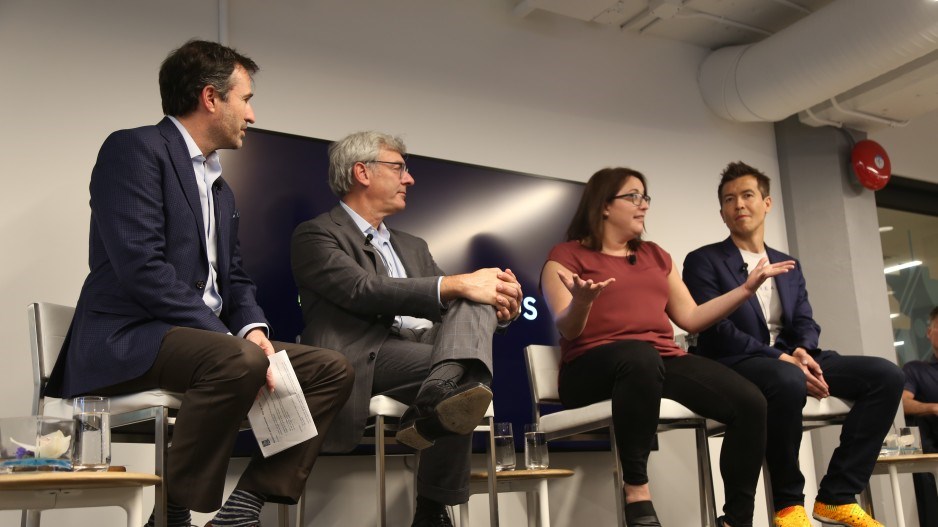Few technologies are expected to transform society over the coming decades as artificial intelligence (AI).
But along with hopes that AI will dramatically increase efficiency and knowledge come fears about the disruption that the technology can unleash.
“I think there’s a small understanding, but there’s a huge amount of fear,” said David McKay, CEO and president at the Royal Bank of Canada (RBC), May 29 during a panel discussion hosted by Borealis AI as part of the official launch of its newest research lab, located in downtown Vancouver. “And I think the word AI is associated at the government level with job loss and job disruption.”
Established by RBC in 2016, Borealis AI is a research institute conducting AI research within a network of labs in Toronto, Edmonton, Waterloo, Montreal and Vancouver.
“I think it’s been a difficult year for artificial intelligence, from a [public relations] perspective,” said Foteini Agrafioti, head of Borealis AI and RBC’s chief science officer, during the same discussion. “A lot of things happened with mismanagement, misuse of data. And unfortunately a lot of that is attributed back to artificial intelligence.”
Agrafioti, who who was also recently named co-chair of the Canadian government’s advisory council on artificial intelligence, added, “Unfortunately, the good stories around artificial intelligence, the great advances that come from that, are getting lost in the noise.”
The applications of Borealis AI’s research go beyond financial services, with the institute supporting open collaboration with academic researchers to help communities tackle diverse problems through tools such as reinforcement learning, natural language processing and deep learning.
Agrafioti highlighted how Borealis AI’s placement at the edge of RBC has given the institute “a little bit of space and freedom to think a little differently,” which extends to the publication of its research. “We’re not just using science, we’re contributing to [it] and putting that out in the public domain,” she explained.
“I think what’s special these days, and in Vancouver particularly we’re really lucky to have two world-class computer science departments, at [the University of British Columbia] and [Simon Fraser University], in the same city – it’s a very rare thing,” said Greg Mori, who heads Borealis AI’s Vancouver lab and is also a professor of computing science at Simon Fraser University.
Borealis AI’s Vancouver lab is focusing mainly on computer vision, a subfield of machine learning that trains computers to see, process and understand the visual world. And while RBC is interested in capitalizing on the applications of computer vision for modelling financial data, the technology can also be applied to environmental science, agricultural management, and humanitarian initiatives.




